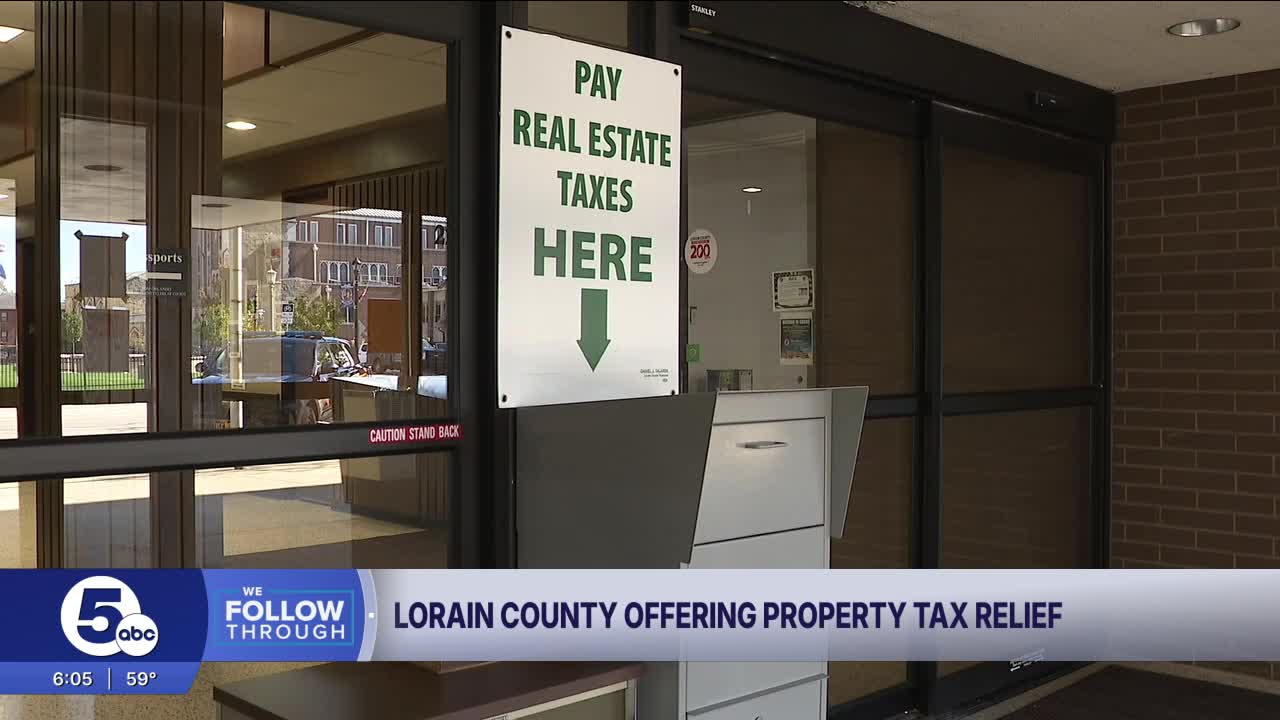LORAIN COUNTY — After a drastic increase in property values, Lorain County leaders say they’re giving homeowners relief. But some worry tax cuts could lead to cuts in the classroom.
This week, the Lorain County Board of Commissioners approved a resolution to provide property tax relief for qualifying individuals and those in owner-occupied homes.
Property tax has increased
It comes after 2023 property reappraisals increased the average Lorain County home value by more than 31%. Some families said the resulting property tax increase was an unexpected challenge.
“It’s gone up just like everything else has gone up,” said Elyria resident Demaris Milum. “Inflation, food prices rising… the whole economy has just declined.”
She explained the tax increase has been especially challenging for her mother, who is still working at age 72 to make ends meet.
“I don’t think we should even have to pay property taxes, especially if you are a senior,” she said, applauding the county’s efforts to provide property tax relief.
A provision in the state budget passed this year allows county governments to create property tax exemptions and credits that mirror state programs.
Commissioner Dave Moore said he believes Lorain County is the second county in the state to do so.
“They’re the ones that pay our bills. And they’re the ones that need to have the breaks because they’re not getting it with inflation,” Moore said of homeowners.
Property tax relief
He explained the same individuals eligible for Ohio’s homestead exemption will see their tax break double with the addition of the county’s exemption. The state provides a credit on property tax bills equal to the taxes on $28,000 of the county auditor’s market value of a person’s home. Disabled veterans qualify for a credit of $56,000 of the home’s value.
To qualify for the homestead tax exemption, an individual must meet one of the following criteria:
- 65 years or older with a total household Ohio Adjusted Gross Income of $40,000 or below
- Permanently disabled with a total household Ohio Adjusted Gross Income of $40,000 or below
- Surviving spouse of a public safety personnel killed in the line of duty
- Qualifying disabled military veteran with a 100% service-connected disability rating
The resolution will also replicate the state’s 2.5% tax credit for owner-occupied homes.
“This is the max we could do. Honestly, if we could do more, we would,” Moore said.
School funding concerns
Some school districts have expressed concern about how property tax cuts could impact funding.
“No one disagrees that having property tax relief is a good thing and trying to keep taxes low is a good thing. The problem as a school district is our funding depends on taxes,” said Mike Molnar, the superintendent for Amherst Exempted Village Schools.
This November, voters in the school district will see a proposed five-year operating levy in the form of a 1.5% earned school district income tax levy (SDIT). Molnar explained it’s the district’s first request for new taxpayer money since 2012.
The proposal was meant to diversify the district’s revenue, which largely comes from property taxes. Molnar said, despite spending the second least per pupil in the state, growing cuts and expenses have resulted in the district's deficit spending by $4-5 million.
“Things are getting tighter and tighter and the state’s not stepping up to support us,” he said.
Molnard said the county’s new tax exemption will put further strain on the district. He estimates the tax cuts will eliminate an additional $840,000 from district coffers annually.
Moore said the cuts incurred by new tax exemptions are less than the money generated from recent property tax increases.
But Molnar said the additional lost revenue comes as districts are also losing state education funding, and the total losses outweigh any gains.
“What we were supposed to maybe get with this huge property tax increase in Amherst, we’ve now not only taken all of that away, we’re actually now losing money,” he said.
He said the school district relies on a 5-year revenue forecast, which was submitted on Monday. The new tax exemptions approved Tuesday take effect in 2026.
“With this information, I don’t know, we may end up having to go back to the ballot in a couple of years,” said Molnar.
What’s next
The exemptions will begin in 2026.
Those who meet the homestead tax exemption requirements and aren’t already receiving the state benefit must file with the County Auditor by Dec. 31 for the next tax year. There’s no renewal necessary once registered.
For more information, contact the Lorain County Auditor at (440) 329-5212 or email homestead@loraincounty.us.
Catherine Ross is the Lorain County reporter at News 5 Cleveland. Follow her on X @CatherineRossTV, on Facebook CatherineRossTV or email her at Catherine.Ross@wews.com.




